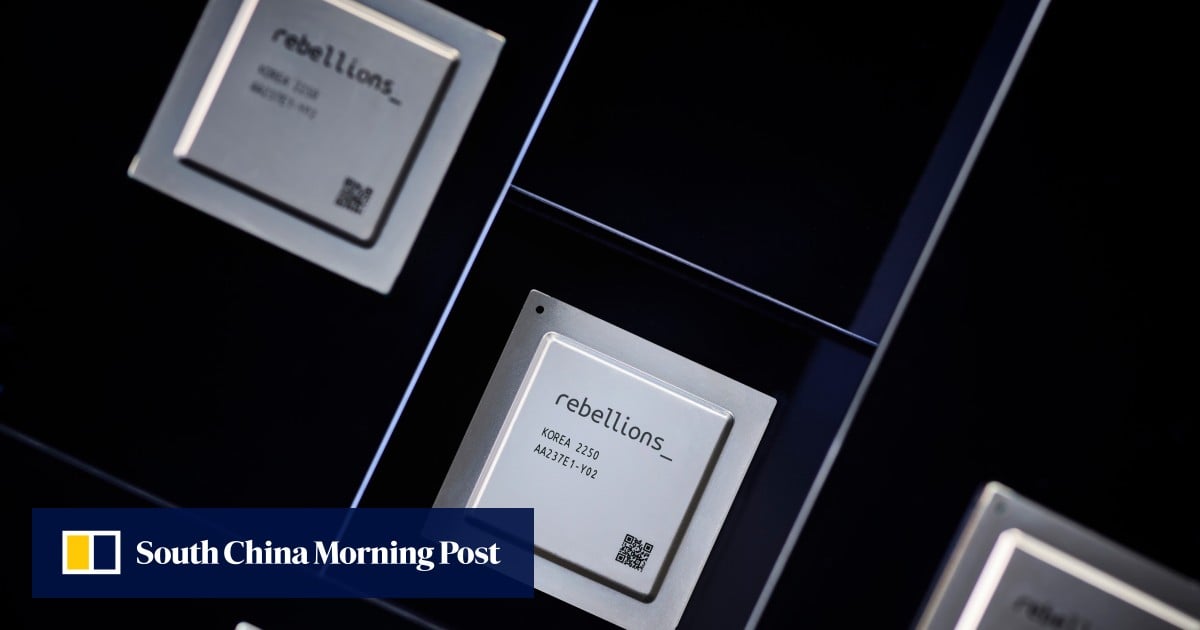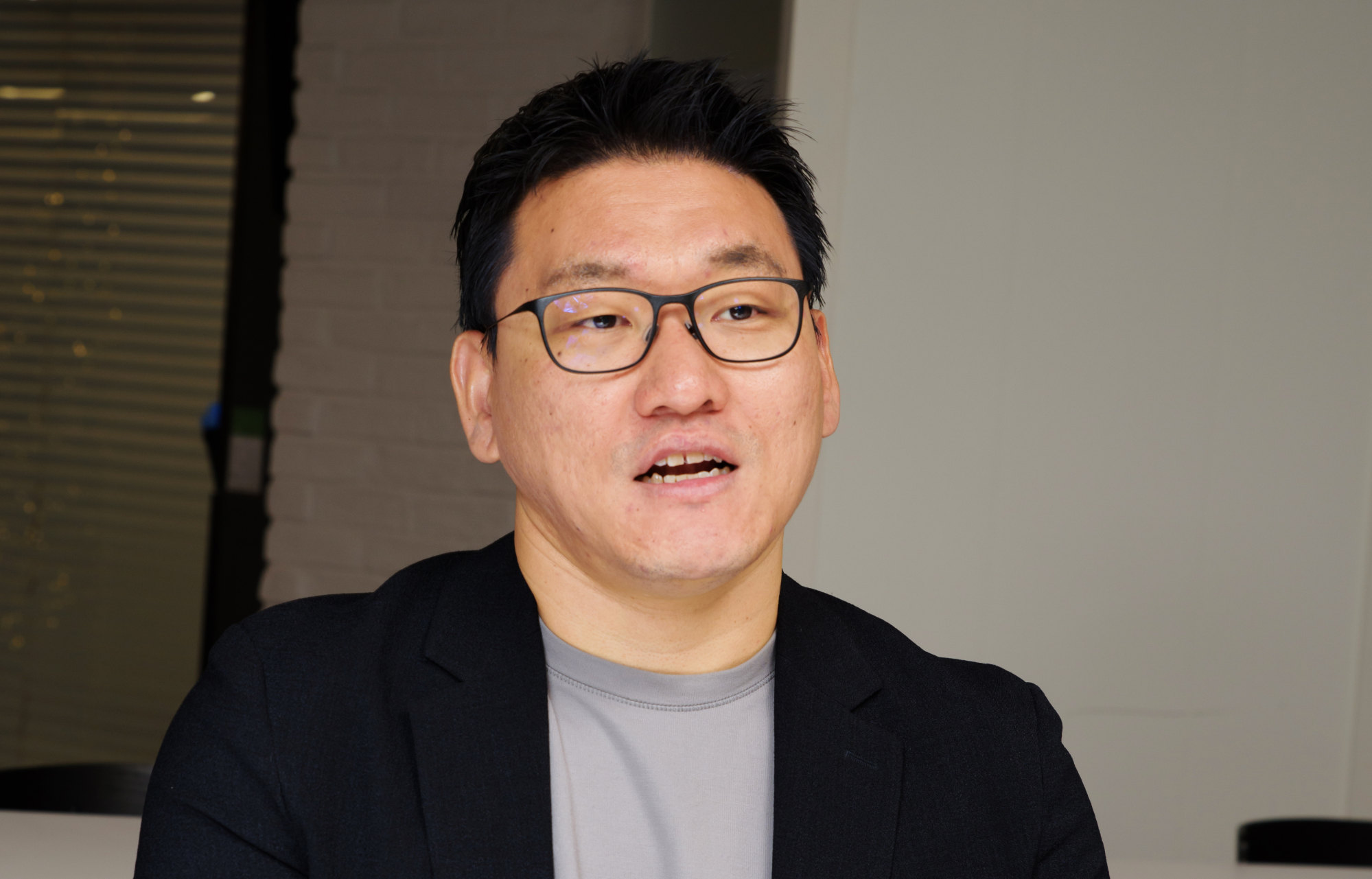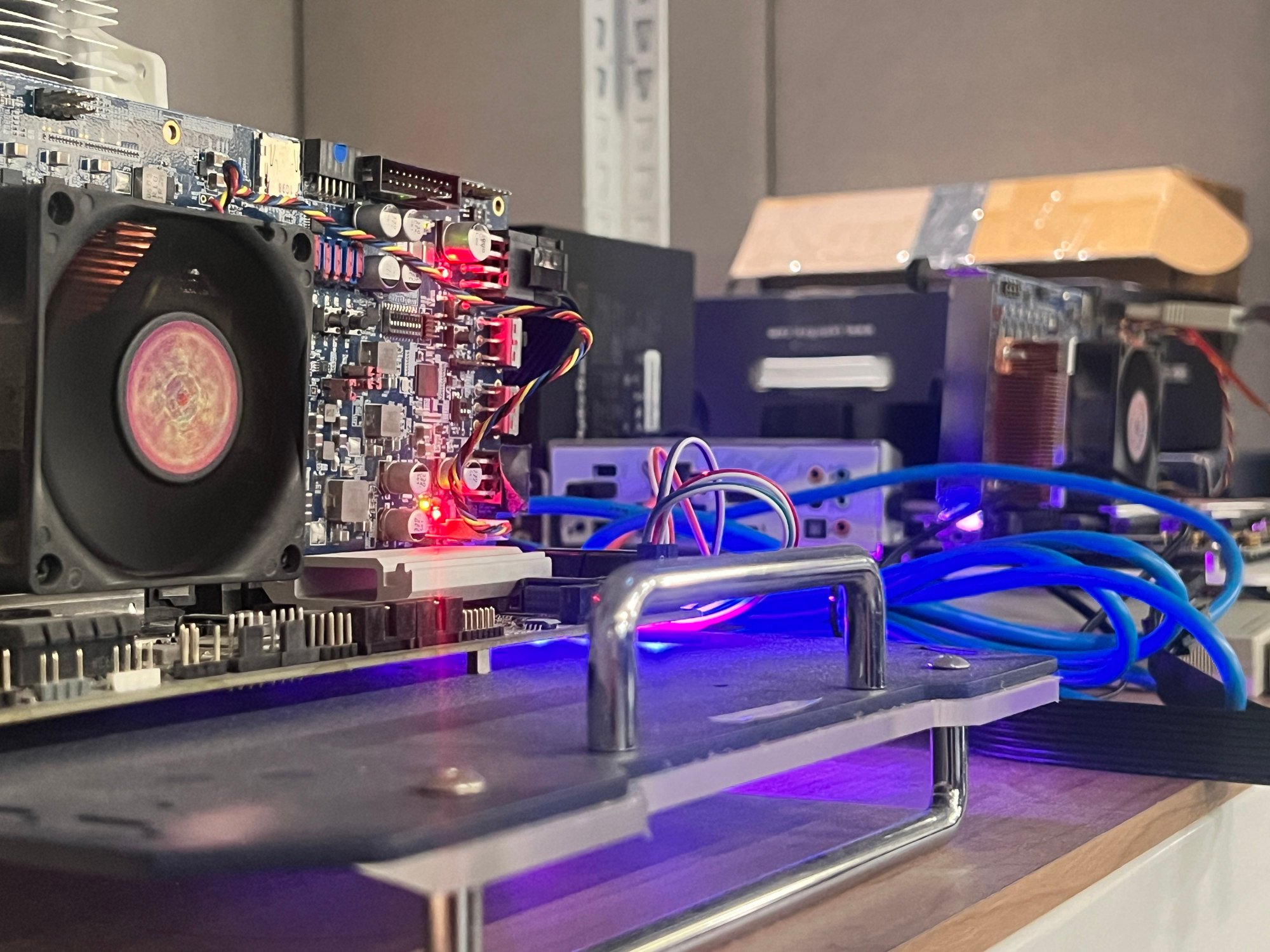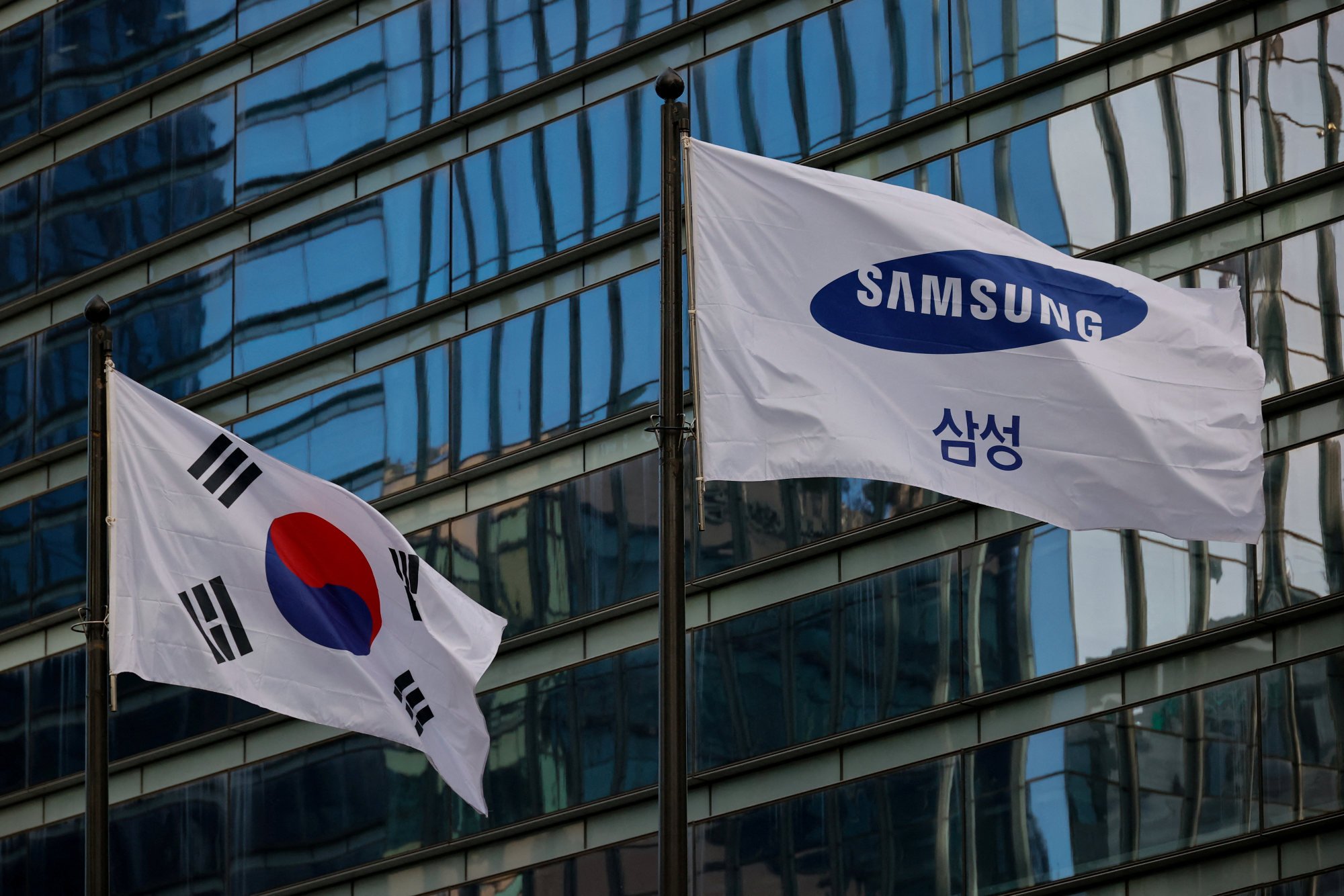
19 Mar South Korea’s Nvidia wannabe, AI chip start-up Rebellions, to begin mass production of NPUs, backed by Samsung
A version of this article was first published by The Korea Times in a partnership with the South China Morning Post.
In an office building in southern Seoul, a dozen chips were laid side by side on shelves, each next to their own electric fan to cool them down as they operate.
Regarded as the next generation of AI chips, NPUs are optimised to perform so-called simultaneous matrix operations, which give them a step up in the AI method known as deep learning, compared with general-purpose central processing units (CPUs) and GPUs.
Rebellions, a fabless AI chip company co-founded by five South Korean engineers in 2020, has been viewed as the country’s best hope to rival Nvidia in AI inference – the process of running live data through an AI model to make a prediction or solve a task, as opposed to training.

Park Sung-hyun, CEO and co-founder of Rebellions, said in a recent interview with The Korea Times that Atom is set to be mass-produced with Samsung Electronics’ 5-nanometre technology in the first half of this year.
That will be an important milestone for the South Korean chip industry, as Atom will be the first domestically developed, mass-produced chip to support language models: AI models trained to mimic natural language.
“We are much more energy-efficient than Nvidia’s GPUs in AI inference,” said Park. Atom is up to five times more power-efficient than Nvidia’s A100, but in a language model inference benchmark test, Atom’s latency – a measure of the speed of performance of chips – was just half of Nvidia’s A2, according to Park.
In practice, that means the Atom chips can be cooled down by only fans, while Nvidia chips need to operate in air-conditioned rooms that consume more electricity and entail higher operating costs.
Rebellions has secured backing from some of the biggest names in the South Korean tech industry, including Samsung, telecoms company KT and internet firm Kakao.
In January, Rebellions raised US$124 million in a funding round led by KT, which has invested over US$50 million in the start-up so far, bringing its valuation to US$650 million and making it the most-funded chip start-up in the country.

Going into mass production will be a big boost for the company’s revenue after years in the prototype stage, Park said.
KT, the second-largest telecoms operator and largest data centre company in South Korea, will become Rebellions’ first customer after mass production of Atom begins, according to Park, who believes telecoms companies are the most ideal clients for AI chips.
“The future of the AI industry is going to be an infrastructure game,” he said. “Telecoms companies are willing to invest large amounts of money into building up data centres.”
Park also hopes the partnership with KT will help its global expansion, especially in the US market, where Rebellions has been in talks with data processing giants such as IBM.
After graduating from the Massachusetts Institute of Technology in 2014 with a doctorate in electrical engineering and computer science, Park spent six years developing chips in the US, working for companies including Samsung’s US research arm, Intel and SpaceX.
Despite his experience in the US chip industry, Park saw better chances for starting a semiconductor company in South Korea. “In the semiconductor hardware ecosystem, Asia is going to be the next big thing,” he said. “South Korea and Taiwan are catching up.”

Park went back to his home country and founded Rebellions, joined by Oh Jin-wook – another Korean AI chip expert with an industry background in the US – and others.
Moving back was not an easy decision, Park said, because his professional network at the time was primarily in the US. Rebellions’ initial team members included former employees at IBM, Intel, Apple and Samsung US. But as the team expanded, it has attracted experts with local backgrounds.
Today, Rebellions has around 120 employees including 100 engineers. Nearly 70 per cent of its staff came from large Korean semiconductor companies, according to Park.
In 2021, the start-up launched its first product, Ion. Manufactured by TSMC, the NPU was designed for AI tasks in the financial industry. But after seeing higher demand from data centre companies than finance companies, Rebellions decided to focus on chips for AI models.
Samsung, the largest chip-maker in South Korea, is Rebellions’ manufacturing partner for Atom.
China narrows mobile memory chip gap with South Korea, US
China narrows mobile memory chip gap with South Korea, US
The two companies deepened their collaboration last October by announcing plans to co-develop Rebel, the start-up’s next-generation NPU after Atom, which targets large language models (LLMs) with large parameter size and competes against Nvidia’s top-end GPU, the H200, in inference tasks.
Park said the company expects its market share in inference chips used for LLMs in South Korea to grow 30 per cent in two and a half years and its global market share to reach “at least 3 to 5 per cent”. Nvidia currently controls up to 90 per cent of the global AI chip market, according to analysts.
“If you catch just a little share of the LLM market, that’s already huge,” Park said.
